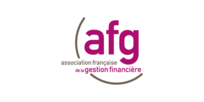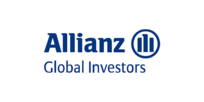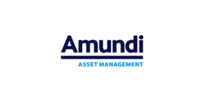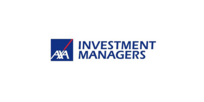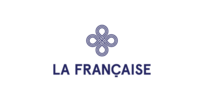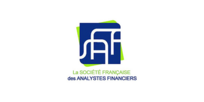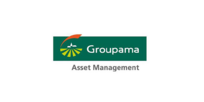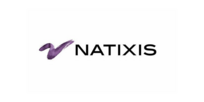Program Objectives
The Asset Management program is a unique work-study program that combines academic instruction, apprenticeship contracts, and collaborative project management, including a virtual investment fund. Established in 2000 in close partnership with leading Paris-based asset management firms, it was the first master's program in France entirely dedicated to this field.
The asset management industry is evolving and restructuring rapidly due to several major factors: strong European regulatory pressure on social and environmental issues, the emergence of new asset classes including private markets, the increasing automation of portfolio management processes thanks to advances in artificial intelligence, and rising demand from private banks and wealth management players.
Our goal is to train portfolio management experts capable of navigating and mastering these structural changes. To achieve this, we select and support students with a high level of skill and adaptability to meet the current and future challenges of the profession.
A Diverse and Inclusive Program
Diversity is at the heart of this program, which admits nearly 70% of its students from outside Université Paris-Dauphine, welcoming graduates from a variety of backgrounds including mathematics, engineering, economics, and finance. For several years now, our cohorts have achieved gender parity, and the program actively contributes to the representation of women in strategic front-office positions.
A Rigorous and Professional Training
The program is demanding and fast-paced, alternating between numerous exams, hands-on work experience, and team projects. Courses are mostly taught by well-known industry professionals, including several alumni of the “ 222 ” program, as well as academic faculty from Université Paris-Dauphine specializing in finance and applied mathematics.
Students may join the program in the first year of the master’s degree for a two-year apprenticeship, or directly in the second year for a one-year apprenticeship.
International Outlook and Diverse Career Opportunities
While many alumni currently work at top asset management firms in Paris, around 25% pursue international careers, often through VIE assignments around the world and more recently through Summer and Graduate programs, primarily in London. Since Brexit, the international orientation of our graduates has grown even stronger, as has the program’s connection with major Anglo-Saxon and international banks.
Program objectives:
- Portfolio Management: Mastery of asset management principles in both individual and collective portfolios, with expertise in allocation and diversification strategies.
- New Asset Classes and Regulation: In-depth knowledge of emerging asset classes, European regulations, contractual and ethical standards, as well as extra-financial analysis (ESG).
- Asset Valuation Models: Strong skills in financial valuation models, both static and dynamic, adapted to various asset types.
- Macro-Economic Analysis: Ability to interpret global economic trends and integrate these analyses into portfolio management strategies.
- Financial and Extra-Financial Analysis: Expertise in analyzing equities and non-listed assets, integrating both financial and extra-financial criteria for comprehensive management.
- Performance and Risk Calculation Tools: Proficiency in constructing, using, and optimizing specialized tools to measure performance and assess financial risks.
- Computer Techniques Applied to Finance: Mastery of computer tools and programming languages used in finance, tailored to the specific needs of portfolio management.
- Collective Project Management and Communication: Skills in managing collaborative projects, with a strong focus on both oral and written communication for clear and effective reporting.
When you enroll in a Master's program, you also join Université PSL. Ranked in the top 50 universities in the world (THE and QS), PSL offers excellent graduate programs at the Master's and PhD level, which benefit from the scientific capabilities of its member institutions. The degree is prepared at Université Paris Dauphine-PSL and awarded by Université PSL.

- Types of education
- Work-based training
- Language(s)
- French and English
- ECTS Credits
- 60 credits
- Internship
- No work-based training
- Capacity
- 40
- Type of Diploma
- Diploma from a major institution conferring the Master's degree
- Academic Year
- 2025/2026

The challenges of the ecological and social transition in the Master's degree programs
Several courses and tools are offered to students in the Master’s program, regardless of their specialization
- “Ecological Transition and Social Responsibility” Certificate
- “Dauphine Durable” SPOC A common base of knowledge in the areas of ethics, social responsibility and sustainable development. It tackles the basics of CSR: control, human resources, finance, marketing, strategy, climate issues and the environmental transition.
- “Managing SDGs” SPOC A unique learning experience in which students from multiple countries work together on real-life case studies.
- Virtual University of the Environment and Sustainable Development At PSL, Dauphine is a founding member of Université Virtuelle Environnement et Développement durable (Virtual University of the Environment and Sustainable Development), which allows it to provide its students with a set of resources and MOOCs.
Contacts
Marie-Aude Laguna
Associate Professor
Director of the 2nd year of the Master's degree
Ségolène BEHR
Teaching assistant
After Dauphine
Employability Indicators After Graduation - Survey Conducted in Collaboration with CGE
job hunting's average duration
Professional integration rate
Median salary


